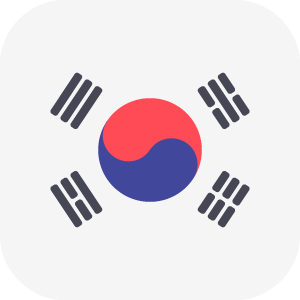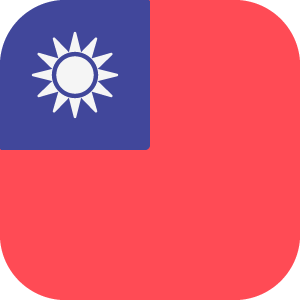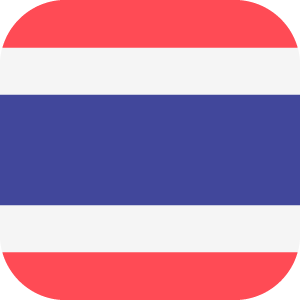
Do: Try to use Vietnamese Phrases
When in a foreign country, the language barrier can sometimes make communication quite difficult. Learning just a little bit of the local language will show your interest in Vietnam and its people and will go a long way in making communication easier. While people in Vietnam are already super friendly to begin with, using a few phrases to talk to the locals will get you a lot of praise. Couple that with a smile and you will have a much easier time when talking to people.
Here are some common phrases that you can use:
Xin chào (Hello)
Cảm ơn (Thank You)
Xin lỗi (Sorry or Excuse me)
Bạn tên gì? (Whatˋs your name?)
Tôi tên là … (My name is …)
One especially helpful phrase is “Em ơi!”. It literally means “Hey you!” but you use it in a similar way to “Excuse me!” when you want to get the attention of, for example, waiters or other service personnel. Only use this for people that are younger than you though, as using it for an older person would be disrespectful. In case you want to get the attention of an older person, you should use the phrase Xin lỗi as stated above.
Do: Try local Vietnamese food

Vietnam’s local cuisine uses super fresh ingredients and belongs to the most healthiest in the world. With its roadside eateries and street markets, Vietnam makes a paradise for foodies. When you pick a food stall to eat at, there are a few tips for making sure that you will have a good experience. You want to look for the freshness of the ingredients and a lot of customers eating at the food stall is usually also a good sign, as higher turnover means fresher wares.
Try out many tasty dishes like the national dish Pho noodle soup, the baguette inspired by France Banh Mi, Vietnamese Spring Rolls, and the pancakes called Banh Xeo, known for their sizzling sound on the grill.
Eating in Vietnam brings with it its own table manners. When eating with others, waiters serve food on a plate in the middle of the table for everyone to help themselves to. Don’t take food and put it directly in your mouth, but put it on your plate first. It is considered polite to offer other people food, but don’t forget to use the other end of your chopsticks for it. Never stick your chopsticks upside down in your rice bowl as this is reminiscent of the incense sticks burned at funerals.
Do: Take pictures
Capturing Vietnam’s beauty and its people on picture is certainly a good idea. But there is also reason to not be too trigger happy. It’s always best to first ask Vietnamese for permission before you take their picture. Many Vietnamese will happily oblige if you ask them. Some things are best not to be put on canvas though, like military sites for example. As photographing military sites is forbidden by law, breaching it can bring severe punishment with it.
Do: Try Vietnamese coffee

Did you know that Vietnam is actually the second biggest coffee producer in the world after Brazil? Originally introduced by the French, coffee has long since found its way into the Vietnamese culinary scene. Ca Phe, as it is called in Vietnam, is usually served together with sweetened condensed milk and is a real treat. The taste of Vietnamese coffee is so good that it can very much hold its own against Italian coffee.
Another more peculiar version of coffee in Vietnam is Egg coffee. This almost desert like version came to be during a time when milk was sparse and people used egg yolks was a substitute.
Do: Take a Xe ôm ride

Perhaps the most popular transportation vehicle in Vietnam, motor taxis offer a quick, exciting and cheap way to get through the city. Literally meaning “hugging the driver”, Xe ôm are motorbike taxi services that are operated by one driver and offer space for one or two customers. Xe om drivers are living maps and excellent drivers, which makes them able to easily escape traffic jams. This makes Xe om a good option for when you are in a rush. Nowadays, Xe ôm function similarly to Uber or Lyft, are very high-tech and offer a lot of comfort and safety.
Don’t: Gift Handkerchiefs
Giving gifts is an essential custom in Vietnam. But there are things to look out for. For example, giving handkerchiefs as a gift in Vietnam is considered extremely rude as handkerchiefs are associated with wiping away tears. This means that by giving a handkerchief as a gift you are wishing for something miserable to happen to the receiver. Gifts that are better suited are fruits, cake or flowers. It is also important to make sure that the gifts are wrapped properly and not in the color black as it is seen as a bad omen.
Don’t: Stop on the street

Traffic in Vietnam never stands still, so it’s important to keep some things in mind to make it safely from one side to the other. Always try to walk at a normal pace but determined and signal which way you intend to go. That way drivers can anticipate your moves and simply drive around you. Drivers are unlikely to stop for you. Never stop in the middle of the road or turn back once you start crossing it. While the usual traffic rules often don’t apply in Vietnam it is best to always double check when crossing roads and to be as secure as possible.
Don’t: Be in a rush
When having conversations or doing business it’s important to keep in mind that no one in Vietnam is in a rush. Rushing won’t do any good. On the contrary, it’s probably going to make things more difficult. The concept of face is very important in Vietnam. Vietnamese are extremely careful not to commit any actions that could make them lose face. Face can be lost, but also given and built up. If you make a scene in public you will not only lose face yourself, but also cause other Vietnamese to lose face which is considered undesirable. So it is best to be calm and understanding so that you can save face. The concept of saving face is essential to the do’s and don’ts in Vietnam.
Don’t: Compliment people
There are certain ways to give compliments in Vietnam. You never want to compliment someone in a very direct fashion or with overly flowery language. This is, for one, because Vietnamese tend to have a modest personality so they are easily inconvenienced by compliments. Don’t be surprised if Vietnamese people will try to deflect your compliments. The other reason is that overly strong compliments can be seen as insincere, making the person, that was paid the compliment, lose face.
Never compliment children directly, because the children’s guardian spirits could get envious, which could mean harm for the child. For example, if you say that a child is growing fast, Vietnamese believe that it might stop growing. It is best to add the phrase “trộm vía” before your compliment, which means something similar to giving praise. That way the child is sure to be safe from the evil spirits’ mischief.
Don’t: Touch someone’s head
In Vietnam, people consider the head the most sacred body part. It is seen as incredibly rude to touch someone else’s head, especially that of children. In the same way, passing something over someone’s head is also considered rude. In contrast to this, Vietnamese see feet as the “dirtiest” body part and you should never point the soles of your feet towards another person.

















